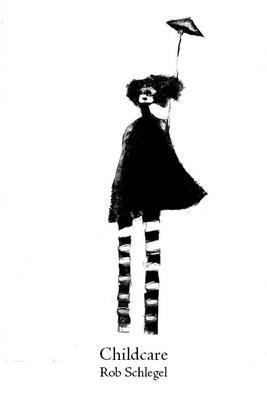Crackling with the hypervigilance of parenthood, Childcare explores the paradox at the root of raising kids: the joy of new life accompanies an awareness of potential loss. Rob Schlegel's fourth collection observes the tangled emotions of fatherhood; even as he wonders at the strange intelligence of youth, he elegizes the present moment. The longitudinal wisdom of this collection appears in the choreography of its leaps -- how it moves from the aside "[My son] needs my love the most when he least deserves it / Is something I read" to the reflection that "Death / Names my shape. I keep my clothes / From dust and ghosts and time. / I'm angry at my father for aging." From Schlegel's relentless curiosity and keen observations, the artistic crisis driving the book emerges: does poetry memorialize the ephemeral moment, saving something for us, or does it remove us from experience? The duality of language's role -- that it, ultimately, has the capacity to do both -- doubles the significance of "childcare" in this collection, which comes to represent not just the work of child rearing but the dutiful care by adult children for their parents. Perhaps nothing can convey the scope and quality of family life like the concatenated dependencies of "(Un)conditional," which terminate here: "If the cut draws blood / If life ends in desire // If it begins in love."

Crackling with the hypervigilance of parenthood, Childcare explores the paradox at the root of raising kids: the joy of new life accompanies an awareness of potential loss. Rob Schlegel's fourth collection observes the tangled emotions of fatherhood; even as he wonders at the strange intelligence of youth, he elegizes the present moment. The longitudinal wisdom of this collection appears in the choreography of its leaps -- how it moves from the aside "[My son] needs my love the most when he least deserves it / Is something I read" to the reflection that "Death / Names my shape. I keep my clothes / From dust and ghosts and time. / I'm angry at my father for aging." From Schlegel's relentless curiosity and keen observations, the artistic crisis driving the book emerges: does poetry memorialize the ephemeral moment, saving something for us, or does it remove us from experience? The duality of language's role -- that it, ultimately, has the capacity to do both -- doubles the significance of "childcare" in this collection, which comes to represent not just the work of child rearing but the dutiful care by adult children for their parents. Perhaps nothing can convey the scope and quality of family life like the concatenated dependencies of "(Un)conditional," which terminate here: "If the cut draws blood / If life ends in desire // If it begins in love."